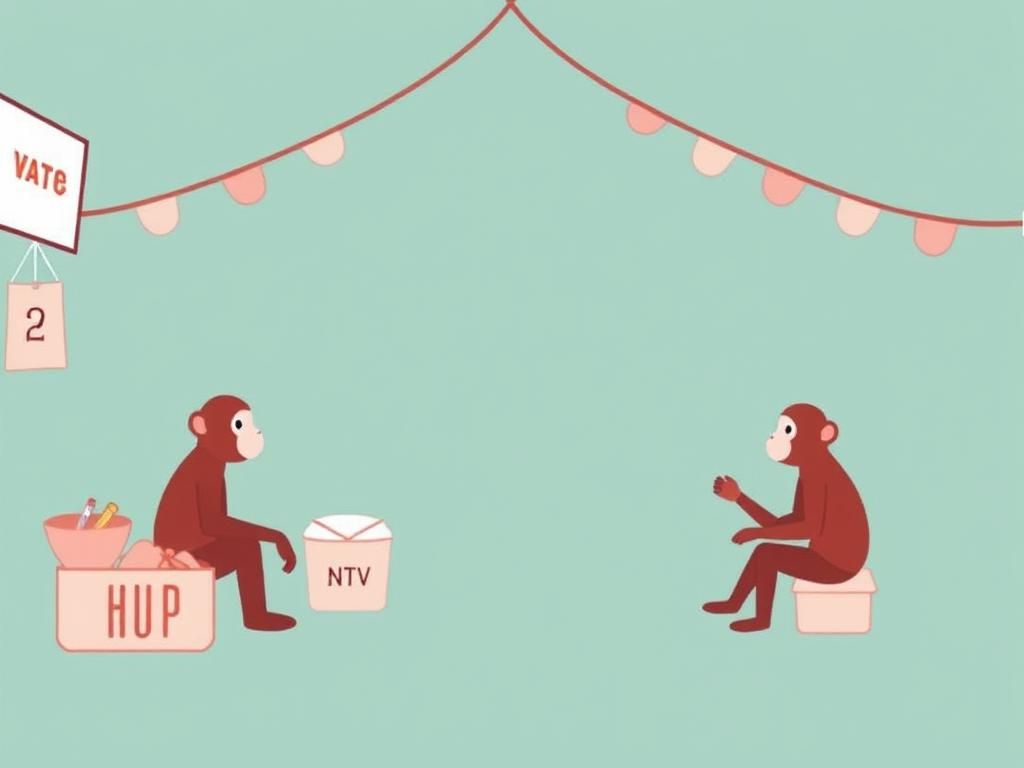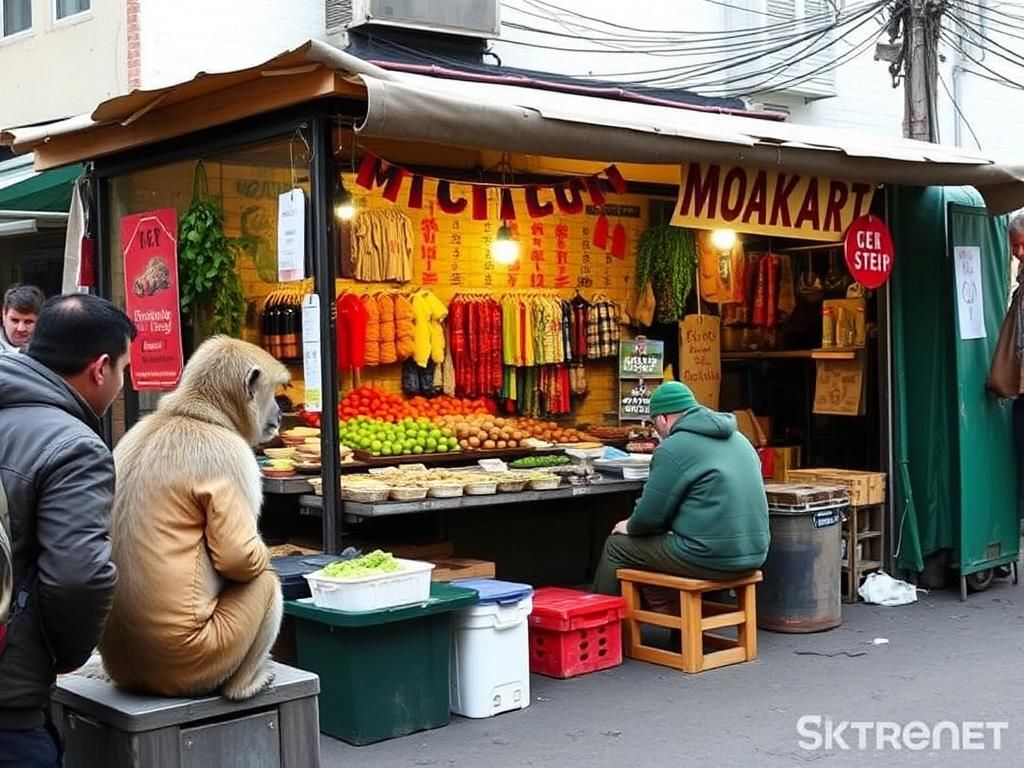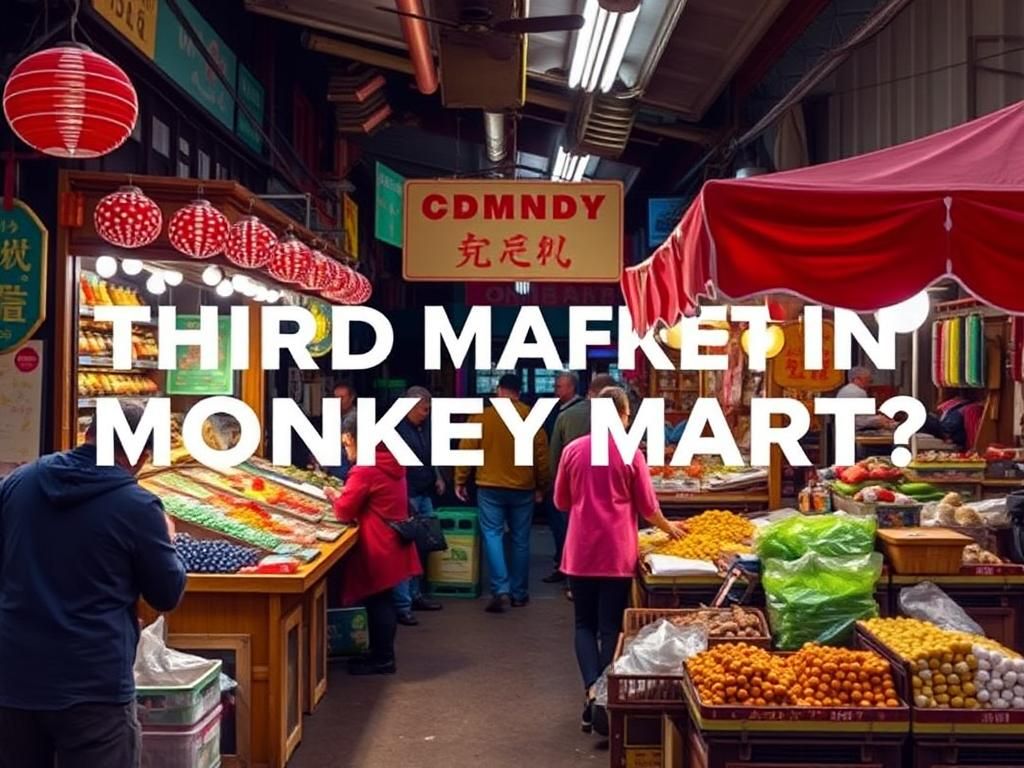In recent years, gaming has evolved beyond mere entertainment, becoming a dynamic platform for economic interaction. One of the intriguing avenues of exploration is whether **is there a third market in Monkey Mart**, a unique gaming experience that captures users’ interest and engagement. To delve into this, it’s essential to understand the basics of Monkey Mart, the gaming market landscape, and the potential for economic interaction among its players.
Monkey Mart is a vibrant and engaging simulation game where players manage their own grocery store, catering to delightful monkey customers. As they navigate various challenges, players engage in transactions that mirror real-life economy dynamics. This gaming context offers an ideal backdrop for examining the existence of a third market alongside the established primary and secondary markets.
When discussing gaming markets, they generally fall into two primary categories: the primary market and the secondary market. Each plays a pivotal role in the overall game experience and economy, which we will explore before investigating the elusive potential of a third market specific to Monkey Mart.
Understanding the Concept of Markets in Gaming
Primary Market
The **primary market** in gaming refers to the original marketplace where developers sell their games, expansions, or in-game content. Transactions in this market include game purchases, downloadable content, and microtransactions that are officially facilitated by game developers.
Examples of typical primary market transactions include purchasing a game from a digital storefront, buying virtual currency, or obtaining cosmetic items directly from the game itself. The primary market is crucial not just for developers, who rely on it for revenue, but also for players looking to access new content and features that enhance their gaming experience.
Secondary Market
Conversely, the **secondary market** in gaming encompasses peer-to-peer transactions, where players trade or sell their items and accounts independently of the developers. This may occur on trading platforms or through direct exchanges amongst players. Common examples include selling an in-game item on a trading website or swapping accounts.
The secondary market has its benefits, such as providing players more control over their assets and creating opportunities for players to make money. However, it is not without risks. Issues related to scams, fraud, and account bans can diminish the player experience and lead to significant concerns for developers about maintaining their game’s integrity.
Exploring the Third Market
Definition of the Third Market
A **third market** in gaming is typically defined as a marketplace that transcends the primary and secondary markets. This can involve community-driven activities and exchanges that facilitate a broader scope of economic interaction amongst players, not necessarily sanctioned or controlled by the game developers.
The differences between the primary, secondary, and third markets hinge on their structure and nature of transactions. While the primary market is developer-controlled and the secondary market allows for peer-to-peer transactions, a third market flourishes in areas like community events, trading communities, or unregulated exchange platforms.

The potential for economic activity in the third market can spark innovations within the game, creating roles like traders or economic managers among players who utilize in-game skills to maximize their profits.
Third Market in Other Gaming Contexts
Various games have successfully integrated a third market within their ecosystems. For example, popular MMORPGs often witness the emergence of trading communities where players gather to barter items, organize events, or engage in auctions. These activities not only encourage player interaction but also stimulate the in-game economy.
In some cases, game developers have recognized the value of a third market, actively facilitating events like in-game fairs or competitions that allow players to buy, sell, or trade items. Such measures enhance community spirit and foster engagement while driving economic activity.
Does Monkey Mart Have a Third Market?
Current Market Structure in Monkey Mart
Currently, Monkey Mart’s market structure consists primarily of the **primary** and **secondary** markets. Players buy the game or its content through the primary market and can participate in the secondary market by trading items and resources with other players.
In this setting, the types of transactions available include buying stock for the grocery store, selling products to monkey customers, and exchanging rare items with fellow players. Community dynamics in Monkey Mart foster collaborations and competition alike, encouraging players to engage and continuously improve their strategies for success.
Evidence Supporting a Third Market
There have been instances within Monkey Mart that indicate some potential for a third market. For example, dedicated players often gather on forums and social media platforms to share tips and strategies, discuss gameplay mechanics, and even explore creative methods of trading items or resources. These community-driven activities suggest a burgeoning economy that lies beyond developer oversight.
Additionally, user feedback and testimonials highlight the presence of player-driven economies, whereby players organize trading events or contests. Such initiatives create excitement, enhance player engagement, and may pave the way for a structured third market depending on community interest and developer support.
Evidence Against a Third Market
Despite indications of a potential third market, there remains evidence against its defined existence in Monkey Mart. For one, there is a lack of formal structures that facilitate or support third market transactions. Unlike games that actively encourage such activities, Monkey Mart has limited infrastructure to help organize community trading.

Furthermore, insights from the community reveal only limited activity regarding exchanges or trades outside the official game mechanics. Players often express frustrations at not having a proper platform for wider economic participation, showcasing limitations unique to Monkey Mart that might prevent the formation of a robust third market.
Implications of a Third Market
Pros of a Third Market
If a third market were to emerge in Monkey Mart, several advantages could follow. First, increased player engagement would manifest as enthusiasts actively participate in trading and acquiring resources. This vibrancy would lead to a flourishing in-game economy, creating environments where players feel invested and influential.
Another essential implication is the potential for developers to monetize further. By allowing space for trading events, microtransactions could complement the primary market revenue and create additional revenue streams outside the traditional mechanisms.
Cons of a Third Market
Each opportunity comes with challenges, and a third market in Monkey Mart could pose significant drawbacks. One major concern is the challenge in regulation and oversight. Developers would need to manage and monitor trading activity to prevent fraud, scams, and ensure a fair play environment.
Moreover, the risks of fraud and scamming can undermine player trust and tarnish the game’s reputation. Players may become disillusioned if they encounter dishonest transactions. Lastly, a burgeoning third market may unintentionally disrupt game balance, leading to issues that can negatively impact the overall player experience.
Future Outlook: Could a Third Market Emerge?
The future of Monkey Mart and the potential for a third market will likely depend on several trends in the gaming industry. The increasing integration of technology that supports virtual economies may lay the groundwork for developers to create tools fostering third market growth.
Additionally, developer initiatives aimed at enhancing player interaction, perhaps through enhanced trading features or community events, could also facilitate the emergence of a third market. Monitoring community desires is vital; developers can benefit from engaging directly with players to understand their interest in potential features supporting a thriving third market.
Conclusion
The presence of a third market in Monkey Mart remains uncertain. While there are indicators of potential growth through community engagement and trading opportunities, concrete structures are needed to fully support and develop this dynamic. Player feedback, community interaction, and developer initiatives will shape the landscape going forward.
To further promote the conversation, community engagement is essential. We encourage you to share your experiences, feedback, and ideas on how a third market might manifest in Monkey Mart. Your contributions can help shape the future of this vibrant gaming universe.
References/Further Reading
- Gamasutra – An insightful resource on game design and development.
- Polygon – A popular gaming news platform that covers trends and developments in the gaming industry.
| Market Type | Description | Examples | Benefits | Risks |
|---|---|---|---|---|
| Primary Market | Official transactions from developers | Game purchases, DLC | Revenue for developers | Limited player control |
| Secondary Market | Peer-to-peer transactions | Item trading, account selling | Player-driven economy | Scamming and fraud |
| Third Market | Community-based trading | Trading events | Increased engagement | Lack of regulation |
FAQ Section
- What is Monkey Mart?
Monkey Mart is a simulation game where players run a grocery store catering to monkey customers. - What is a primary market?
The primary market involves official transactions where developers sell their games and content. - What is a secondary market?
The secondary market consists of peer-to-peer transactions where players trade and sell items. - Is there a third market in gaming?
A third market exists outside formal structures, involving community-driven trading and economic activities. - What are the pros of a third market?
A third market fosters engagement, creates a vibrant economy, and can provide developers with monetization opportunities. - What are the cons of a third market?
Challenges include fraud risk, regulation issues, and potential game balance disruption. - Could a third market emerge in Monkey Mart?
Yes, but it would depend on developer initiatives and community interest in trading features.

